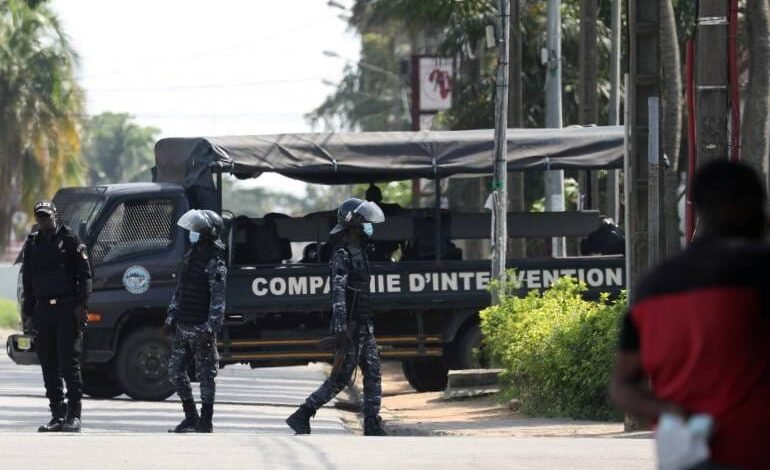Security Tightens Across Côte d’Ivoire as Voters Head to the Polls
Credit: 24 Hours Media Ltd

As millions of Ivorians head to the polls for the presidential and legislative elections, the security situation across Côte d’Ivoire reflects both strategic preparedness and underlying tension. Thousands of security personnel have been deployed nationwide to safeguard polling stations, maintain order, and reassure voters amid a politically charged atmosphere.
🛡️ Nationwide Deployment
Security forces have been stationed across all 31 regions, with heightened presence in urban centers such as Abidjan, Bouaké, and San Pedro, as well as in historically sensitive areas including Lagunes, Goh-Djiboua, and Lacs.
Preliminary reports gathered by 24 Hours Media indicate that most polling stations opened peacefully, though minor delays and logistical challenges were observed in some rural communities.
Authorities have reiterated a zero-tolerance policy toward electoral violence, reinforcing checkpoints at major transport hubs. In Abidjan, visible patrols and crowd control units are stationed near large voting centers to ensure voter safety.
⚠️ Areas of Concern
While large-scale violence appears unlikely, analysts warn of potential localized unrest in regions with strong opposition support or lingering political grievances. The exclusion of key opposition figures such as Guillaume Soro and Laurent Gbagbo has heightened frustration among some voter blocs, raising fears of post-election demonstrations.
In Dabou, tensions flared earlier this week during a campaign rally, prompting temporary curfews and an increased police presence. Similar precautionary measures have been taken in parts of the western and southeastern regions, where political rivalries have historically triggered clashes.
🧭 Observer Insights
Election observers have commended the generally peaceful atmosphere, though they remain cautious. Early field reports suggest that while security is robust in major cities, protection is uneven in rural areas. Civil society organizations have urged authorities to balance security measures with respect for citizens’ rights, ensuring that the presence of armed personnel does not intimidate voters.
Observers have also expressed concern about the perceived politicization of the security apparatus, noting that some deployments may reflect executive influence rather than neutral oversight.
📣 Public Sentiment
Public reactions to the heavy security presence are mixed. Some voters welcome the visible protection as a reassurance of safety, while others fear it may create a climate of intimidation. In interviews conducted in Abidjan and Yamoussoukro, citizens expressed a shared desire for peace, transparency, and a credible electoral process.
As voting continues, attention turns to the Independent Electoral Commission (CEI), the Constitutional Council, and the nation’s security forces, whose actions will be critical in ensuring that Côte d’Ivoire’s democratic exercise proceeds peacefully and credibly, free from fear or coercion.




